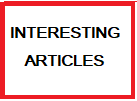Predatory journals claiming that they follow all the ICMJE recommendations
Potential predatory journals are colonizing the ICMJE recommendations list of followers. R Dal-Ré, A Marušić. Neth J Med. 2019;77(2):92–96. Link: http://www.njmonline.nl/getpdf.php?id=2093 ; PMID: 30895939. Recently several predatory journals seem to claim that they follow all the ICMJE (The International Committee of Medical Journal Editors) recommendations to gain the appearance of legitimacy. The term ‘predatory journals’ could be assumed, that these are open access journals that publish poor quality articles, with poor or no peer-review process, owned by publishers providing no transparent editorial services. Their main objective is financial gain by article processing charges to authors. In this paper, the authors…


